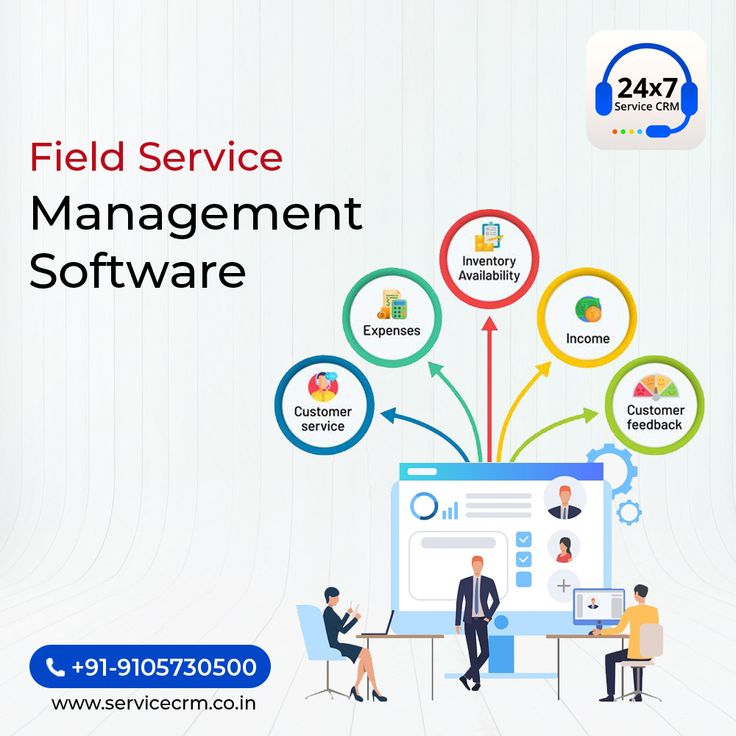
In the competitive landscape of service industries, delivering exceptional service is paramount for retaining customers and driving business growth. Customer Relationship Management (CRM) systems are invaluable tools that enable service-oriented businesses to manage customer interactions, streamline operations, and provide personalized experiences. This article explores how CRM systems can transform service industries, ensuring that exceptional service is delivered consistently.
The Unique Needs of Service Industries
Service industries, which include sectors like hospitality, healthcare, financial services, and professional services, rely heavily on customer satisfaction and loyalty. Unlike product-based businesses, service industries often deal with intangible offerings, making the quality of customer interactions and service delivery crucial.
Key challenges faced by service industries include:
- Maintaining High Levels of Customer Satisfaction: Ensuring that each customer interaction meets or exceeds expectations.
- Personalizing Customer Experiences: Tailoring services to meet individual customer needs and preferences.
- Managing Customer Data: Keeping track of customer interactions, preferences, and feedback.
- Streamlining Operations: Coordinating various service delivery processes efficiently.
- Enhancing Customer Loyalty: Building long-term relationships with customers.
The Role of CRM in Service Industries
CRM systems are designed to address these challenges by centralizing customer data, automating processes, and providing actionable insights. Here’s how CRM can deliver exceptional service in service industries:
Comprehensive Customer Profiles
CRM systems create detailed customer profiles by aggregating data from multiple touchpoints. This includes contact information, service history, preferences, feedback, and communication records. Service providers can use this information to understand each customer’s unique needs and tailor their interactions accordingly.
Personalized Service Delivery
With a CRM system, service providers can personalize every interaction based on the customer’s history and preferences. For example, a hotel can use CRM data to note a guest’s preferred room type or special requests, ensuring a customized experience during their stay. Similarly, a healthcare provider can use CRM to track patient preferences and deliver personalized care.
Efficient Scheduling and Resource Management
CRM systems streamline scheduling and resource management, ensuring that service delivery is efficient and timely. For instance, a financial advisor can use CRM to manage appointments and track follow-up actions. This not only enhances operational efficiency but also ensures that no customer request or appointment is overlooked.
Proactive Customer Service
CRM systems enable proactive customer service by providing insights into customer behavior and potential issues. For example, a CRM can alert a service provider when a customer’s satisfaction levels are declining, prompting timely interventions. This proactive approach helps in addressing issues before they escalate, maintaining high levels of customer satisfaction.
Seamless Communication
Effective communication is crucial in service industries. CRM systems facilitate seamless communication by integrating with various channels such as email, phone, and social media. This ensures that all customer interactions are recorded and accessible, allowing service providers to respond promptly and accurately to customer inquiries.
Feedback Management
Collecting and acting on customer feedback is essential for continuous improvement. CRM systems can automate feedback collection through surveys and follow-up emails. By analyzing this feedback, service providers can identify areas for improvement and implement changes to enhance service quality.
Data-Driven Decision Making
CRM systems provide valuable insights through analytics and reporting features. Service providers can analyze customer data to identify trends, measure performance, and make informed decisions. For example, a spa can analyze CRM data to understand peak times for services and adjust staffing levels accordingly.
Benefits of CRM for Service Industries
The implementation of CRM systems in service industries offers numerous benefits:
- Enhanced Customer Satisfaction: Personalized and efficient service delivery leads to higher customer satisfaction.
- Increased Customer Loyalty: Consistently meeting customer expectations builds trust and loyalty.
- Improved Operational Efficiency: Streamlined processes and resource management reduce operational costs and improve service delivery.
- Better Customer Retention: Proactive service and effective communication help retain customers.
- Actionable Insights: Data-driven insights enable continuous improvement and strategic decision-making.
Case Study: CRM in the Hospitality Industry
The hospitality industry, which includes hotels, resorts, and restaurants, is a prime example of how CRM can transform service delivery. By implementing a CRM system, a hotel chain can achieve the following:
- Personalized Guest Experiences: CRM data allows the hotel to note guest preferences, ensuring personalized room settings and amenities.
- Efficient Check-In and Check-Out: CRM integration with booking systems streamlines the check-in and check-out process, reducing wait times.
- Proactive Guest Engagement: CRM alerts the staff about guest anniversaries or special occasions, enabling personalized greetings and surprises.
- Effective Feedback Management: Automated surveys sent post-stay allow the hotel to gather feedback and make improvements.
Conclusion
In service industries, where customer experience is the cornerstone of success, CRM systems are indispensable. By centralizing customer data, enabling personalized interactions, and streamlining operations, CRM systems ensure that service providers can deliver exceptional service every time. As customer expectations continue to evolve, the adoption of CRM technology will be crucial for service-oriented businesses aiming to stay competitive and build lasting relationships with their customers.